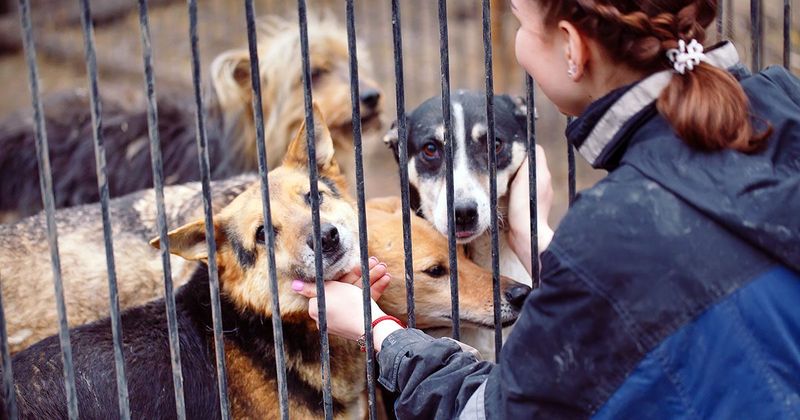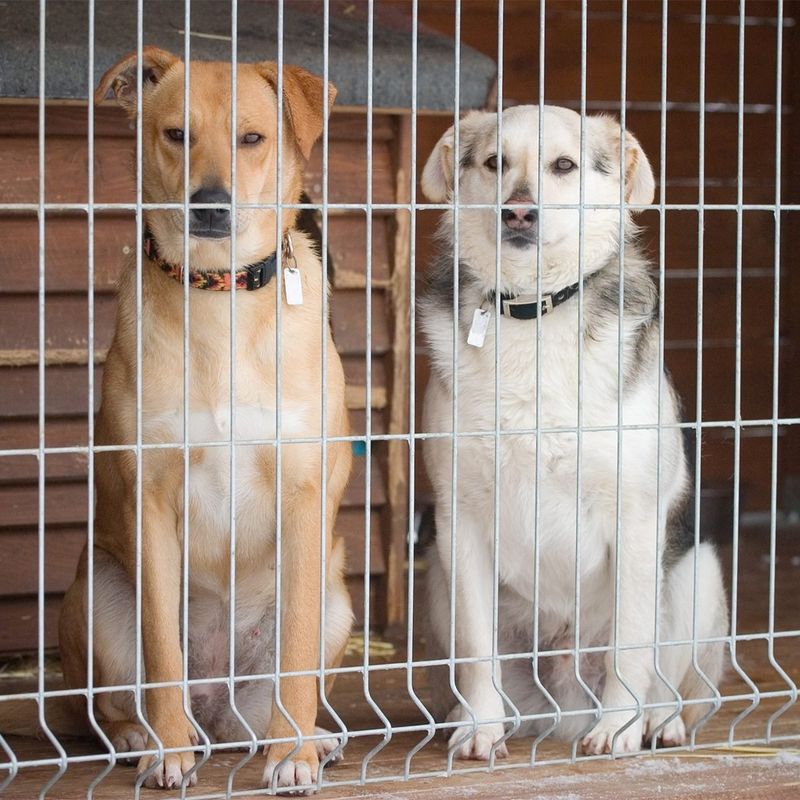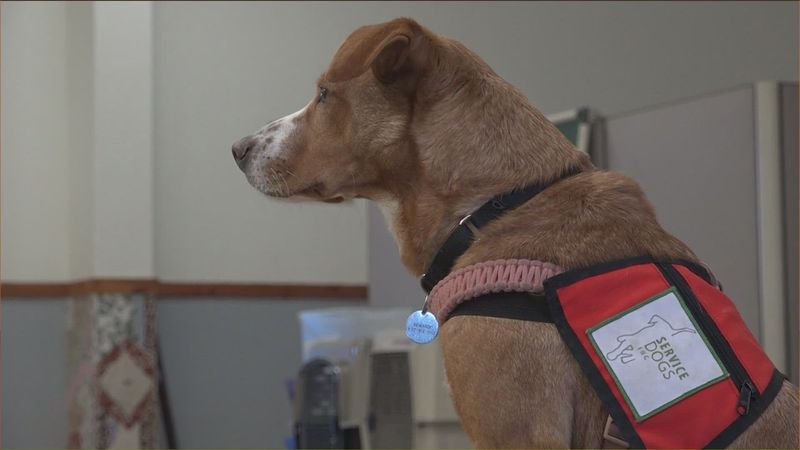16 Myths You’ve Heard About Shelter Dogs Debunked

Shelter dogs often get a bad rap, shrouded in myths and misconceptions. But let’s take a moment to break down common myths and reveal the truth behind these lovable pups.
From misconceptions about behavior to health myths, there’s much to discover about the reality of shelter dogs.
1. Shelter Dogs Are Unhealthy

Contrary to popular belief, shelter dogs aren’t all sickly. Many shelters provide thorough health checks and vaccinations.
Dogs with special needs receive the care they require. It’s not uncommon to find a vibrant, energetic dog ready for adoption.
Shelters are committed to the wellbeing of their residents. They often offer support and guidance to new pet owners to ensure their dog stays healthy and happy.
2. You Can’t Find Purebreds In Shelters

Think shelters are only for mutts? Think again. Purebred dogs often find themselves in shelters due to various reasons.
From German Shepherds to Poodles, you can discover a wide array of breeds. Purebreds are surrendered for reasons unrelated to their pedigree.
If you’re set on a specific breed, check local shelters first. You might be pleasantly surprised by the purebred options available.
3. Shelter Dogs Come With Unknown Histories

Worried about a dog’s past? Shelters often have detailed records. Many dogs come with full histories, making it easier to know their background.
Shelters work hard to gather information on each dog. Knowing a dog’s history helps potential adopters make informed decisions.
4. Shelter Dogs Are Hard to Train

Believing shelter dogs can’t learn new tricks? Think again. Many shelter dogs are eager and quick learners.
Training a shelter dog can be a rewarding experience, with many dogs being highly responsive to training.
Shelters often provide training support and resources. With patience and consistency, shelter dogs can excel in obedience and beyond.
5. Older Shelter Dogs Are Not Adaptable

Who says old dogs can’t learn new tricks? Older shelter dogs can adapt beautifully to new homes.
Mature dogs often possess a calm demeanor, making them perfect companions. They can bond just as deeply as younger pups.
With a little patience, an older dog can thrive in a loving environment, proving adaptability isn’t age-restricted.
6. Shelter Dogs Are All Mixed Breeds

Think it’s all mutts in shelters? Nope! While mixed breeds are common, there’s no shortage of purebreds.
Shelters often have an impressive range of breeds to choose from. Breed doesn’t determine a dog’s capability to be a fantastic pet.
If you have a preference, visit a shelter. You might find not only the breed you’re looking for but also a great friend.
7. Shelter Dogs Are Aggressive

Aggressive? Hardly. Many shelter dogs are as sweet as can be. Aggression is generally linked to environment and training, not shelter status.
Shelters assess dogs to understand their temperament and behavior. Many aggressive behaviors can be curbed with proper guidance and environment.
A loving home often transforms a dog’s demeanor, making aggression a myth worth debunking.
8. All Shelter Dogs Have Behavioral Issues

Ever heard someone say shelter dogs are troublemakers? This myth needs some serious debunking. Many shelter dogs are surrendered due to circumstances beyond their control—not behavioral issues.
Just like humans, dogs have different personalities. You might find a gentle soul waiting for a forever home, not a troublemaker.
9. You Can’t Bond With A Shelter Dog

Think bonding is hard with shelter dogs? Not true! Shelter dogs can form strong, lasting bonds with their new families.
Many dogs are eager for affection and thrive in environments where they feel loved.
Given the chance, a shelter dog might become your most loyal companion, offering unconditional love and friendship.
10. Shelter Dogs Are Only Good As Guard Dogs

Shelter dogs aren’t just guard dogs. Many are affectionate companions looking for a family.
They come in all shapes and sizes, each with unique personalities. Whether you’re looking for a cuddle buddy or a hiking partner, shelters have it all.
Exploring a shelter can introduce you to a range of potential pets, perfect for any lifestyle.
11. Shelter Dogs Have Trust Issues

Concerned about trust? Shelter dogs can be incredibly trusting and loving.
Many dogs are ready to open their hearts to new experiences and people. They often show gratitude like no other.
Earning their trust might take time, but the bond that forms is unbreakable. Shelter dogs are capable of deep trust and affection.
12. Shelter Dogs Are Boring

Boring? Hardly. Shelter dogs can be full of life and adventure. Many are eager to explore and learn new tricks.
They often surprise adopters with their playful and curious nature. Every dog has its own quirks and charm.
If you’re looking for excitement, a shelter dog might be just what you need to add some fun to your life.
13. Shelter Dogs Can’t Live With Other Pets

Worried about other pets? Many shelter dogs coexist happily with other animals.
Shelters often test dogs with other pets to understand compatibility. Proper introductions can lead to lasting friendships.
If you’re patient and willing to introduce them slowly, a shelter dog might fit perfectly into your furry family.
14. Shelter Dogs Are Damaged Goods

Damaged? Not at all. Shelter dogs are resilient and can thrive in loving homes.
Many dogs have overcome challenges, showing strength and adaptability. They often bring joy and companionship to their families.
Adopting a shelter dog is a chance to offer love and receive it tenfold. These dogs are far from damaged; they’re incredible survivors.
15. Shelter Dogs Are Too Much Work

Too much work? Not necessarily. Many shelter dogs are easygoing and well-adjusted.
They often adjust quickly to new routines and environments. Shelter staff can guide you in finding a dog that matches your energy level.
With a little effort, a shelter dog can seamlessly integrate into your lifestyle, proving they’re worth every moment.
16. Shelter Dogs Can’t Be Service Animals

Who says shelter dogs can’t serve? Many go on to become exceptional service animals.
With the right training and temperament, they can provide invaluable assistance. Many organizations train shelter dogs to aid humans.
A shelter dog might be the perfect candidate for service, offering loyalty and dedication in their role.






